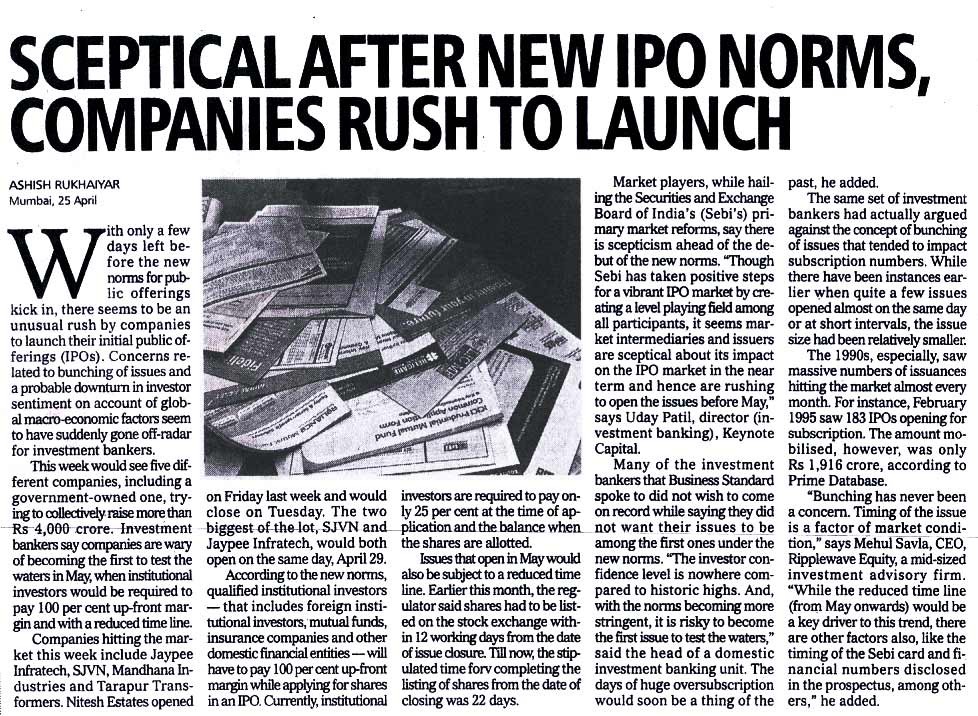Small companies hop on to delisting bandwagon Indian Express
Post on: 16 Март, 2015 No Comment

Top Stories
Even as big firms, including multinational companies, struggled to delist from the bourses last year, a clutch of smaller Indian firms have successfully delisted from Indian exchanges.
Fibreboard manufacturer Jolly Board, a company with less than R500 crore of market capitalisation, is the latest company to have delisted this year, taking the number of successful delistings this year to six.
Jolly Board’s delisting through the reverse book-building route opened on the BSE on May 27 and closed on May 31. The promoters of the company accepted an exit price of R1,000 per equity share of R10 each. The promoters have received the required number of equity shares to complete the delisting process in terms of the regulations at the exit price accepted by the promoters, enabling the company to delist its equity shares from the stock exchange, said Arvind Jolly, MD, Jolly Board, in a statement issued on Friday.
The other five companies that successfully delisted this year include Ratnabali Capital Markets, EMC, Amrit Banaspati, Indian Steel and Wire Products and Chettinad Cement. The unsuccessful delisting offers this year include that of Elcid Investments, Indo Tech Transformers and APW President Systems. In 2012, twelve companies successfully delisted, which included names such as Bansal NatureVest, Digvijay Chemicals, Kinetic Capital Services, India Securities, Chemplast Sanmar and Publicity Society of India.

According to experts, the case for delisting becomes stronger in a weak market environment as a substantial fall in stock prices provides an opportunity for corporates to buy out the remaining stake with the public at lower valuations. Delisting is a win-win situation for both promoters and public shareholders, if the former is ready to accept the price, said Uday Patil, director, investment banking, Keynote Corporate Services.
Thanks to the Sebi norms, the determination of the exit price is entirely in the hands of the public shareholders. Promoters, at times, are ready to shell out a higher price than expected as it frees them from all requirements of continuous listing on the bourses, he added. Interestingly, most bigger MNC players who wanted to delist their shares in 2012 did a volte face and opted for stake sales instead. For instance, after several attempts to delist its shares from the bourses, AstraZeneca Pharma India finally decided to reduce its promoter shareholding to 75% in March this year to comply with the Sebi requirement of minimum public shareholding.














